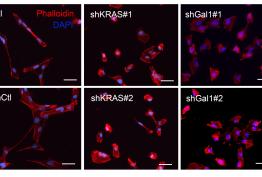The study published in the Neurotherapeutics journal has validated a new pharmacological target for Alzheimer’s disease. The results show that the inhibition of the soluble epoxide hydrolase (sEH) enzyme in murine models of the disease reduces the neuroinflammatory process, thus improving the endogenous response of the organism and reducing the deterioration and death of the neurons that causes this type of dementia. These results reaffirm the role of that protein in the evolution of Alzheimer diseases and show its inhibition as a potential therapeutic strategy for this pathology and also for other that present neuroinflammation.
Drugs currently used to treat Alzheimer's disease have very limited efficacy and only in mild stages of the disease. The researchers have identified this strategy as a new therapeutic target based on the pathophysiological pathways of the disease, alternatively to those studied in recent years.
The researchers state that sHE is linked to the progression of Alzheimer's, thus being considered a new pharmacological target. Animal experiments were carried out to check the effects of 3 oral sEH inhibitors (structurally different) and found that they all prevented cognitive impairment and reduced all markers of the disease, thanks to its neuroprotective effect.
The researchers of the IIBB-CSIC Coral Sanfeliu and Rubén Corpas have collaborated with the professors of the Faculty of Pharmacy and Food Sciences Mercè Pallàs (Institute of Neuroscience), Santiago Vázquez (Institute of Biomedicine of the UB, IBUB), Carles Galdeano (IBUB) and Christian Griñán-Ferré (Institute of Neuroscience). Experts from the Autonomous University of Barcelona (UAB), the University of Santiago de Compostela and the University of California-Davis have also participated.
Original paper Neurotherapeutics, junio de 2020. Doi: https://doi.org/10.1007/s13311-020-00854-1







